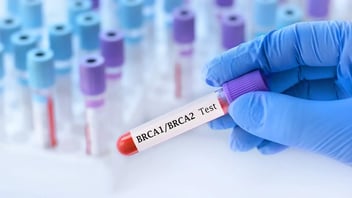What to Expect After a Preventive Mastectomy
Choosing a preventive mastectomy is a deeply personal decision—one often made after careful consideration, genetic testing, and discussions with a trusted provider. For many women at high risk of breast cancer, it’s a proactive step toward protecting their long-term health.
“Deciding to have a preventive mastectomy is never easy, but it can be empowering,” shares Ann Chuang, MD, FACS, breast surgeon with Premier Surgical Network. “Understanding what recovery looks like can help patients feel more prepared for what’s ahead.”
The Importance of Preventive Mastectomy
A preventive mastectomy is performed to remove one or both breasts before cancer develops. It’s done most often in women who carry BRCA1 or BRCA2 gene mutations or who have a family or personal history of breast cancer. This procedure can reduce the risk of developing breast cancer by up to at least 85%.
At Premier Surgical Network, our world-renowned breast surgeons perform these procedures with precision and compassion, using advanced surgical techniques to help patients achieve the best possible outcomes. From pre-surgical planning to recovery, every patient receives personalized guidance and education.
Even after surgery, routine breast exams and follow-up imaging remain essential. “Preventive surgery greatly lowers risk, but ongoing vigilance is key,” stresses Dr. Ann Chuang. “We encourage all our patients to stay engaged with their breast health through regular check-ins.”
What to Expect After a Preventive Mastectomy
Recovery after a preventive breast cancer surgery varies for each patient, but most people will stay in the hospital overnight or longer after surgery. Full recovery can take several weeks to months.
Here’s what recovery typically involves:
- Discomfort and swelling: Mild to moderate soreness, tightness, or numbness is expected in the first few weeks.
- Drain care: Your care team will show you how to manage surgical drains at home.
- Fatigue: Your energy levels should gradually improve as healing progresses.
- Follow-up visits: Your breast surgeon will monitor your healing and discuss next steps for reconstruction, if planned.
- Limited arm movement: Gentle range-of-motion exercises can help reduce stiffness and prevent scar tissue.
Emotional changes are also just as important to address, as you may experience a mix of relief, grief, or body-image concerns during recovery.
Life After a Preventive Mastectomy
In the months following breast cancer surgery, most patients gradually return to their usual routines. Gentle stretching, short walks, and mindfulness practices are all recommended to promote healing.
Some women may also notice changes in sensation or range of motion, especially if lymph nodes were removed, but participating in physical therapy can help restore comfort and confidence.
Of course, long-term follow-up remains an integral part of breast health, even after preventive breast cancer surgery. This is because regular visits with your surgeon and routine imaging help ensure continued wellness and early detection of any changes.
Genetic Testing and BRCA Counseling in New Jersey
Understanding your genetic risk is an important first step in preventive care. Premier Surgical Network offers access to BRCA testing and genetic counseling, so that patients can make informed decisions about their breast health.
Through personalized risk assessments, a breast surgery specialist helps identify whether preventive surgery may be the best next step. Early detection and proactive prevention remain the most powerful tools against breast cancer.
Not Sure if a Mastectomy is Right for You? Call Us Today
“For many patients, a preventive mastectomy marks the beginning of a new chapter,” says Dr. Chuang. “It’s about taking control of your health—and your future.”
Every patient’s situation is unique, so whether you’re considering preventive breast cancer surgery, need guidance after genetic testing, or simply want to understand your breast cancer risk better, our team is here to help at every stage of your journey.
Schedule a consultation today to learn more about your options and take control of your breast health with confidence.





.png?width=352&name=Surgical%20Options%20in%20Mastectomy%20(1).png)